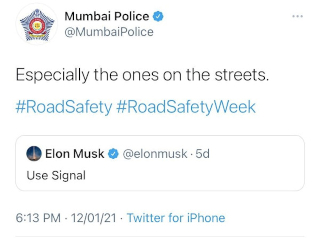[Image by Dean Moriarty from Pixabay]
Good morning,
We pulled out these quotes from The Quotable Feynman, a collection of quotes edited by the famed physicist’s daughter. They all deal with the value of doubt, much needed for our times.
“This is in the attitude of the mind of the populace, that they have to have an answer and that a man who gives an answer is better than a man who gives no answer, when the real fact of the matter is, in most cases it is the other way around. And the result of this is that the politician must give an answer. And the result of this is that political promises can never be kept. It is a mechanical fact, it is impossible. The result of that is that nobody believes campaign promises. And the result of that is a general disparaging of politics, a general lack of respect for the people who are trying to solve problems.”
– The Unscientific Age, John Danz Lecture Series, 1963

“Some intellectual sits at the typewriter and writes it all out as if the information were really known. The intellectual never says, ‘I don’t know this,’ or ‘I’m not really sure.’ If he were to do so, he couldn’t sell his articles because somebody else would come along and say that they have all the answers.” – U.S. News and World Report interview, February 1985
“We absolutely must leave room for doubt or there is not progress and there is no learning. There is no learning without having to pose a question. And a question requires doubt. People search for certainty. But there is no certainty. People are terrified—how can you live and not know? It is not odd at all. You only think you know, as a matter of fact. And most of your actions are based on incomplete knowledge and you really don’t know what it is all about, or what the purpose of the world is, or know a great deal or other things. It is possible to live and not know.” – The Role of Scientific Culture in Modern Society
What are your favourite Feynman quotes? Let us know.
In this issue
- How Mumbai Traffic Police became a brand
- How to thrive in a Vuca world
- Privacy Vs People
Have a great day!
How Mumbai Traffic Police became a brand
Soon after Elon Musk urged his followers on Twitter to adopt messaging app Signal, the social media arm of Mumbai Police gave the tweet a twist. To say that Mumbai Police managed to attract much attention and drive their point home is an understatement.

Mumbai’s citizens are now familiar with clever messages that Mumbai Police posts on social media. Take this one for instance that it followed up with yesterday on Instagram with Mona Lisa in a car.

Messages such as these explain why Mumbai Police has over 5 million followers on Twitter and over 255,000 on Instagram. The messages get people’s attention and drive the police force’s point home. But just how do they manage to do it consistently?
The Economic Times reported on how it all fell into place in a report by Shepali Bhatt yesterday.
“Mumbai Police joined Twitter in December 2015. The two people who played a key role in making this happen were Ahmad Javed, Mumbai’s then Commissioner of Police (now India’s ambassador to the Kingdom of Saudi Arabia), and Deven Bharti, the city’s Joint Commissioner of Police (Law & Order). They were clear that there will be nothing nasty about their language of communication, nothing preachy either…
“Javed and Bharti hired a lesser-known content marketing agency: Trivone. Seven years in the business now, Trivone (Tamil for Sravana Birth Star) comprises several former journalists who facilitated a dialogue with seniors in the police department…
“Trivone has 47 people on its payroll at this point, but initially, the Mumbai Police handle was run by all of five people: three social media managers and one designer who were all supervised by a project manager… Trivone has worked on 250 projects in the last seven years and Mumbai Police still tops the list of its favourites.”
Dig deeper
- The agency that successfully launched Mumbai Police on Twitter (The Economic Times)
How to thrive in a vuca world
In a webinar on Tuesday, Bob Johansen, distinguished fellow with the Institute for the Future in Silicon Valley, shared his insights on how to become a full-spectrum thinker. Full-spectrum thinking, he said, is the ability to make sense out of the future across gradients of possibility while resisting the temptations of certainty, mindless categorization and thoughtless labelling. The webinar was organized by iSPIRT Foundation in association with NSRCEL of IIM Bangalore, and was moderated by Prof. Vasanthi Srinivasan of IIM Bangalore.

“The future will reward clarity, but punish certainty.”
Here are eight takeaways from Johansen’s presentation and Q&A:
- The way you evaluate a futurist is by asking, does his or her foresight provoke your insight? It doesn’t really matter if you agree with the foresight or not. It only matters if you’re provoked by it.
- There is a negative way to see vuca (volatility, uncertainty, complexity, ambiguity). We can flip that into a positive frame so volatility yields to vision, uncertainty yields to understanding, complexity yields to clarity and ambiguity yields to agility. That’s the way to make the world a better place.
- Be very clear where you’re going and very flexible how you get there. That’s how you win in a vuca world.
- What we think of as video gaming today is going to be the most powerful learning medium in history ten years from now, because we have to learn in immersive engaging ways and we’ve got these digital interfaces now that are so much more powerful. The gaming world is way ahead of us in business.
- Hierarchy command and control basically doesn’t work in the vuca world. It only works in more stable, more predictable times. So what we need is that ability for leaders to lead from behind, to be servant leaders, to help grow the shape-shifting organization where hierarchies come and go.
- Today, we’re labeling each other, we’re categorizing each other in very simplistic ways and that’s very dangerous in a vuca time. Categories aren’t bad if they’re accurate and if they’re fair. But so often they aren’t. We particularly have to resist the binary categories—either this or that, black-white, resident-immigrant, gay-straight. These binary categories get us in a lot of trouble because most situations are not binary.
- Certainty gets rewarded in the short run. That’s why autocrats rise into power but autocracy, fascism are not scalable in this world because anything that can be distributed will be distributed and the future will reward clarity but punish certainty. Many are certain but few are clear.
- People often say to me, how can you do 10-year forecasting? I can’t even do one- or two-year forecasting. The reason is because it’s easier to do 10-year forecasting. Here's an example 10 years out, it’s obvious we’ll have sensors everywhere. They’ll be very cheap. They’ll be interconnected. Some of them will be in our bodies. What’s not obvious is how we get from here to there.
Our colleague Charles Assisi, who is a co-founder, shared his perspectives on the work of Johansen, drawing examples from his personal and professional experience. In summary, he said, “Don’t focus too early. Prepare yourself for multiple shifts. And if you are a digital immigrant, have the humility to learn and be mentored by digital natives.”
Dig deeper
People vs. Privacy

(Via WhatsApp)
Tell us what you think and find noteworthy. Head over to our our Slack channel.
And if you missed previous editions of this newsletter, they’re all archived here.
Bookmark Founding Fuel’s special section on Thriving in Volatile Times. All our stories on how individuals and businesses are responding to the pandemic until now are posted there.
Warm regards,
Team Founding Fuel
(Note: Founding Fuel may earn commissions for purchases made through the Amazon affiliate links in this article.)

